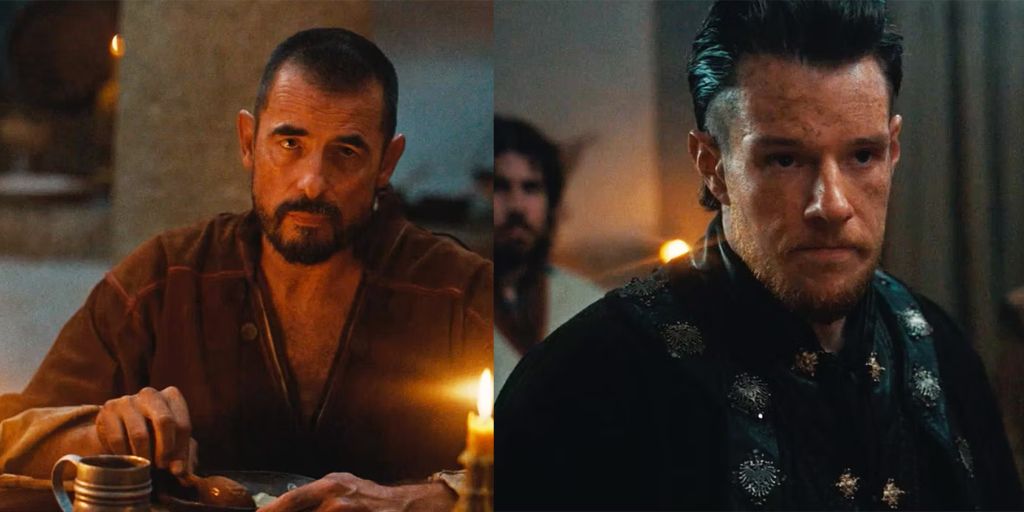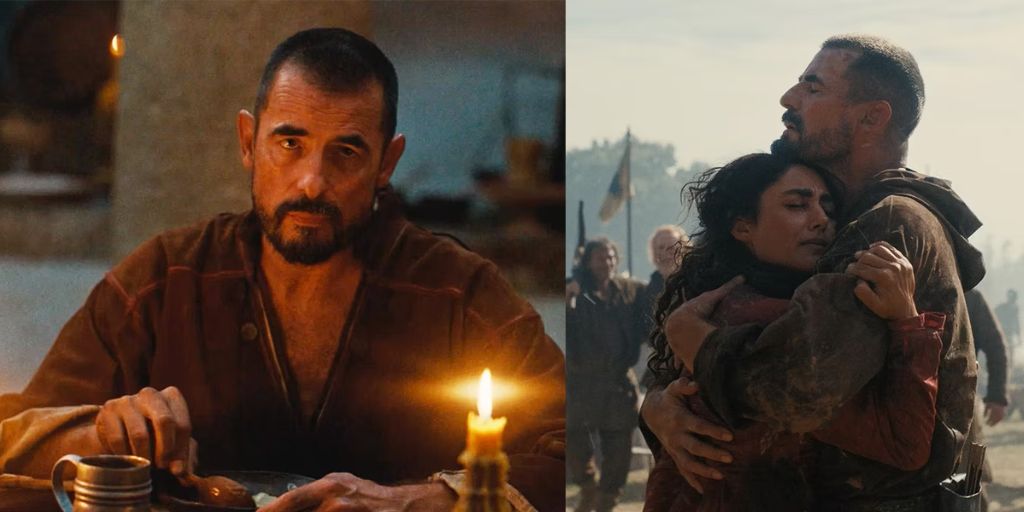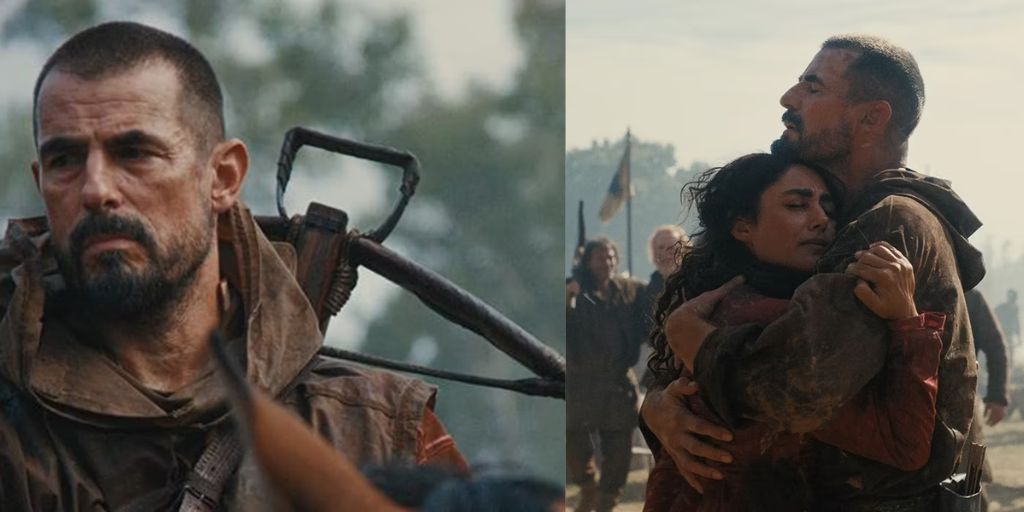Between films like Braveheart, Rob Roy, and Outlaw King that mix legend with dramatic flair, historical tales of heroism are always exciting. These powerful stories of rebellion and timeless struggles have fascinated audiences for years. Studios are now looking to history for more big-screen adventures.
Last week, at the Toronto International Film Festival, BAFTA-winning filmmaker Nick Hamm premiered his latest film, William Tell. This adaptation of the Swiss folk hero tells an epic story with impressive visuals and strong performances from Claes Bang, Connor Swindells, and Rafe Spall. The film is visually stunning and has gripping battle scenes but struggles with maintaining a consistent tone.
The movie was filmed in Italy, using South Tyrol to represent 14th-century Switzerland. This setting adds a vivid and engaging touch to the film. However, despite the beautiful visuals and strong performances, the emotional impact feels a bit disconnected.
The film, while a noteworthy addition to the genre, sometimes gets lost in dramatic and action-packed moments without a clear direction throughout its 133-minute runtime. Additionally, it relies on a familiar plot device that feels superficial and detracts from the core story.
What Is ‘William Tell’ About?
If you are unfamiliar with the tale or the famous opera overture, the film begins with the hero, William Tell (played by Bang), having to shoot an apple off his son’s head. This tense scene grabs the audience’s attention and makes them curious about how the story reached this point.
The film then goes back three days to show Europe on the brink of war. The Swiss people are suffering under the harsh rule of an Austrian king named Albrecht (played by Sir Ben Kingsley) and his cruel tax collectors.
The story begins with a shocking act of violence where a villager seeks revenge after his wife is assaulted and killed. This brutal start sets the tone for intense action and the efforts of men (and two leading women) to save the day.
However, the commodification of assault in the film feels superficial. The film embellishes its lore for cinematic appeal, making the assault seem like a tired plot device that reinforces the white male savior culture.
The film picks up when the villager meets William Tell, who desires a quiet life after fighting with the Knights Templar. However, peace is not easy for him. With the locals frustrated and facing abuse of power, the weary marksman decides to fight back.
He picks up his crossbow to lead the fight against the oppressive Hapsburgs and confronts the king’s ruthless henchman, Viceroy Gessler (played by Swindells). William receives help from his friends and former army mates, including fellow Crusader Stauffacher (played by Spall).

Although it seems like a group of heroes seeking justice, the story becomes more intense. The film also shows the folk hero’s PTSD, featuring emotional drama, gruesome fight scenes, and hand-to-hand combat that rival the best in the genre.
William Tell combines elements from the ’90s epics for a revenge-driven story that shows the cost of war and hints at a larger story beyond the hero, potentially setting up for more if Hamm continues the project.
‘William Tell’ Aims High With Its Strong Performances
The film does not shy away from showing the harsh realities of rebelling against an oppressive regime. William Tell mixes quiet suspense with high-stakes action and performances that highlight the exhaustion of war.
This is especially evident in William Tell, who struggles as a reluctant hero and father while dealing with his trauma from the Crusades. Bang, known for his roles in The Square and The Northman, gives a powerful performance as the folk hero.
His portrayal adds depth and authenticity through expressive and intense acting that reveals the character’s emotional and psychological wounds.
The film features well-choreographed fight scenes that show William Tell as a formidable warrior. Bang’s commanding presence makes him exciting to watch on screen.
His interactions with his co-stars, particularly Golshifteh Farahani, who plays his wife, create a sharp and nourishing dynamic. Farahani highlights William’s softer side, adding to the film’s emotional depth.
Supporting roles also contribute to the film’s dynamism. Spall plays William Tell’s friend Stauffacher with energetic and memorable performance.
Swindells, as the villainous Gessler, brings a snide and intense portrayal that adds focus to the cast. Swindells, known for Sex Education and Barbie, delivers a fierce performance that raises the stakes in his scenes with William Tell.
‘William Tell’ Suffers From Inconsistencies Between Character and Story
Despite the strong core cast, the film underuses its supporting talent. The characters of the king’s niece (Ellie Bamber) and a Swiss nobleman (Jonah Hauer-King) seem out of place and lack strong narrative relevance. Their scenes feel excessive and could be cut to shorten the film’s runtime.

Kingsley’s portrayal of the Austrian king is cold and calculating but falls into predictable villain tropes. His character lacks originality and does not add much to the story.
Despite its grand setting and lush cinematography, William Tell struggles with balance. It oscillates between melodrama and action sequences, wanting to be campy yet earnest.
The film offers grand battles, menacing villains, and beautiful vistas, reminiscent of past epics. Its strong cast, impressive battle sequences, and sharp cinematography make it an engaging film. It’s a fresh take on a legendary folk hero and might appeal to those looking for a cinematic experience with historical drama.




